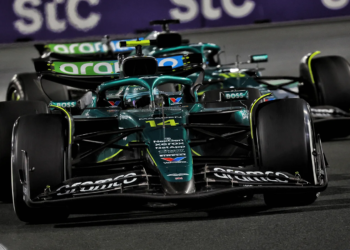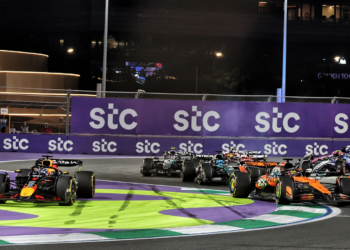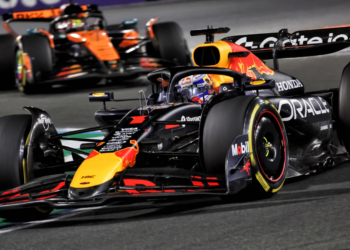Formula 2 racer Juan Manuel Correa has opened up about the months following his life-threatening crash at the ninth round of the 2019 F2 season at Spa-Francorchamps, exposing a vast lack of support from the FIA.
Correa suffered a considerable injury to both of his legs and his spine, following the incident during the sprint race, which also claimed the life of 22-year-old Anthoine Hubert.
Correa had to undergo twenty operations on his leg and foot bones and suffered significant mental trauma following the crash.
Extraordinarily, Correa returned to a full-time racing programme in 2021 in FIA Formula 3, racing for ART GP, before completing a second season in 2022. After making two appearances in F2 last season, the American-Ecuadorian is now competing with Van Amersfoort Racing in F2 this season.
But Correa owes his recovery to his team around him rather than to the FIA as he highlights a lack of support from the sports governing body.
“I was alone,” he said on the Track Limits podcast.
“I had my family, my friends, my people but there was zero support from the FIA. That was pretty bad to be honest, it was sad, it was sad.
“I almost felt kind of used in the sense that when you’re there giving a good show, they’re there and they’re the first ones to benefit from that.”

The 23-year-old racing driver has spoken publicly about these issues three years ago when he explained to NTV that he felt that the FIA did not support him when his life was at risk. These claims were swiftly rebutted by the FIA’s Chief Medical Officer, Dr Christian Wahlen, who stated that the on-site doctors saved his life and that the FIA had kept Correa’s family updated while he was hospitalised.
Speaking in his recent interview, Correa was more open about how change within the sports governing body is difficult to come by, even after the devastating impacts of the 2019 crash.
“I don’t want to get so much into it because there is a conflict of interest and I’m racing there again now but there was a bit of that feeling and I’m just going to say I was very very lucky to have the people I had, internally, to help me because there was not the support system that there should have been”
“I think they realise a few things from my accident I’ve have had a few conversations with them about it. Sometimes it’s not easy though to change such a big organisation. They have a lot of things going on.
“What I’ll tell you is that if someone had the same accident as I did tomorrow, I would be there for them like nobody was there for me because I know what they would need and what is lacking.”









